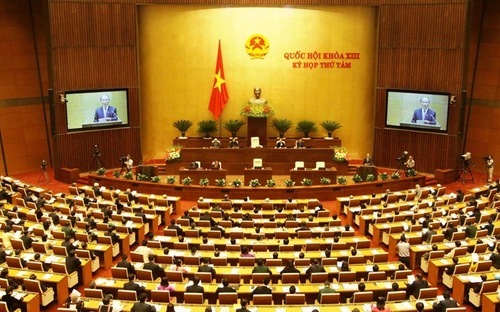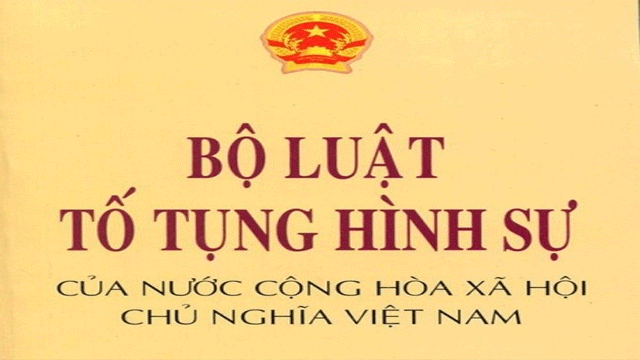In the near future, many new regulations on criminal procedure will officially come into effect, among which the following 04 regulations are noteworthy.
1. Guidelines for Handling Requests by Defendants or Legal Representatives for Reading and Copying Case Documents
Interministerial Circular 02/2018/TTLT-BCA-VKSNDTC-TANDTC-BQP stipulates the sequence, procedures, duration, and location for entities accused of crimes to read and copy documents related to their charges, defenses, or exoneration. Accordingly:
- In cases where a commercial entity defendant requests to read and copy case documents, a written request must be submitted to the investigating authorities handling the case. If the defendant is in temporary detention, the detention facility is responsible for forwarding the request to the investigating authorities;- Within 3 days from the receipt of the written request, the investigating authorities must issue a written refusal if the defendant falls under Clause 2, Article 3 of Interministerial Circular 02, or must promptly prepare copies of the documents and notify the defendant of their right to read and copy the documents if they fall under Clause 1, Article 3;- If the defendant is not in temporary detention, the reading and copying of documents will take place at the headquarters of the prosecuting agency. If they are in temporary detention, it will be conducted in the interrogation room of the detention facility.
More details can be found in Interministerial Circular 02/2018/TTLT-BCA-VKSNDTC-TANDTC-BQP which took effect from March 18, 2018.
2. Interrogation of Defendants Only Permitted with Audio and Video Recording Equipment
This new provision is noteworthy in Interministerial Circular 03/2018/TTLT-BCA-VKSNDTC-TANDTC-BQP, which was recently issued to guide the procedures for audio and video recording; usage, management, and storage of recorded results with audio during investigation, prosecution, and trial processes.
In cases where audio or video recording equipment is not available, interrogation and taking of statements from the defendant and the legal representative of the criminal entity are not permitted.
Furthermore, the investigating authorities must immediately halt interrogation if technical issues arise with the recording equipment. This occurrence must be documented in a report and confirmed by a technical officer.
However, it is still permissible to proceed with the interrogation and taking of statements without recording equipment if it is agreed upon by the defendant and the legal representative of the criminal entity.
Interministerial Circular 03/2018/TTLT-BCA-VKSNDTC-TANDTC-BQP took effect from March 18, 2018.
.jpg)
3. Four Prohibited Acts in Audio and Video Recording during Investigation, Prosecution, and Trial
Interministerial Circular 03/2018/TTLT-BCA-VKSNDTC-TANDTC-BQP also specifies four prohibited acts during audio and video recording involving criminal entities, specifically including the following circumstances:
- Unauthorized modification, cutting, splicing, falsification, destruction, alteration, damage, or loss of recorded data with audio;- Copying, disseminating, exploiting, or using recorded results with audio beyond the purposes specified;- Disclosing or leaking case information, or infringing upon the rights, legal interests, reputation, and honor of organizations or individuals;- Intentionally damaging or misusing technical equipment used for audio and video recording.
4. Regulations on the Handover and Reception of Persons in Temporary Detention or Custody
During the reception process, if it is discovered that the person in temporary detention or custody has injuries, severe illness, or signs of mental illness, they must be transferred to medical facilities at the district level or higher to determine the severity of their condition.
Additionally, the detention facility must compile a handover record, detailing the severity of the condition, health status, and signs of injury, accompanied by medical records from the health authority.
For the agency handling the case, if it is deemed that allowing a person in temporary detention or custody to meet relatives severely impacts the case, a written request must be issued to prevent such meetings.
The above content is referenced in Interministerial Circular 01/2018/TTLT-BCA-BQP-TANDTC-VKSNDTC which took effect from March 12, 2018.
.jpg)
 Article table of contents
Article table of contents





.Medium.png)
.Medium.png)
.Medium.png)
.Medium.png)
